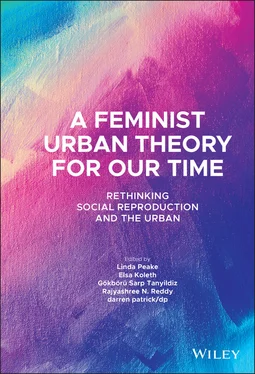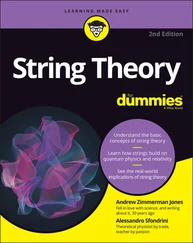1 ...8 9 10 12 13 14 ...18 With the urban as the primary mode through which capitalism endeavours to organize the social, political, and economic realms, a number of other chapters also highlight how processes of subject formation in the realm of social reproduction reveal fractures in capital’s attempts to address those relations which capitalism has not yet been able to fully undo, incorporate, or defeat. For example, Angel argues that it is ‘through engagements with irregular infrastructural connections, that new ways of navigating and producing the city (and urban subjectivities) are being performed.’ In other words, APE activists saw themselves as engaging in a feminist praxis, given their efforts to ‘sustain life’ in ‘collective and egalitarian ways’. Although they show glimpses of a more emancipatory urban future, these struggles were also replete with the violence and precarity that leads to the formation of fragmented fugitive and indebted subjects, who had to resort to illegal occupation and illegal connections to the city’s formal water and electricity networks. And while APE’s collective actions saw success in legalizing water connections, they were less successful in securing legality for electricity connections, leaving poor inhabitants in a state of insecurity.
Also with a focus on the urban politics of infrastructure, Gillespie and Hardy’s account, in Chapter 11, of their comparative study of AMMAR and Focus 15 shows how ‘women’s subjectivities’ that emerged from these engagements changed over time ‘from victimised, stigmatised and invisibilized subjects to agential actors with collective strategies for changing the conditions in which they live.’ Faced with considerable ignominy, as sex workers and single mothers, both groups ‘initially mobilised around notions of motherhood.’ Despite the positive narratives of political motherhood that arose in the 1970s and 1980s in Argentina with the Madres de la Plaza de Mayo, the sex workers’ engagement with union activities eventually led to them identifying primarily as members of the working class. In both Córdoba and London, women’s changing subjectivities led to new demands. In the UK, the single mothers also moved on from an identification solely as mothers to being housing rights campaigners, as they increasingly came to recognize that they were part of ‘a much wider housing crisis that had not only gendered, but also classed and raced dimensions.’ In Cordoba, the focus shifted from police repression to demand for access to infrastructures of social reproduction in education and healthcare.
Santos Ocasio and Mullings ( Chapter 2) address the development of a collective subjectivity in a context of the absence of any reference points for an imagined future. In their exploration of the role of musical expressive practice in urban social reproduction, they address the ‘impulse to sociability’ – what brings people together and how that coming together sustains and enables the intergenerational and ancestral (re)connection to a sense of collective subjectivity, belonging, and liberation. Integral to sustaining a collective subjectivity is not only the unpaid work involved in social reproduction, including the passing on of knowledge, social values, and cultural practices, but also the forms of sociability and collective critique found in the expressive labour of making music.
Decolonizing Feminist Urban Knowledge
Our broad project of advancing a feminist urban theory for our time is predicated on recognizing the need to decolonize feminist knowledge production about the urban, including within this book. Coloniality, or the patterns of power resulting from colonialism that have shaped subjectivities, political and economic power, and knowledge (Maldonado-Torres 2007; Noxolo 2017), brings into view the way in which historical structures of gendered oppression, such as patriarchy and heteronormativity, work in concert with structures of class and racial ordering to shape contemporary urbanization. While postcolonial theory has long analysed how colonial power has shaped knowledge and global systems of economic, political, and cultural ordering emanating from Eurocentric epistemologies, decolonial theory from Latin American and Caribbean perspectives has theorized the relationship between coloniality and modernity, and liberation from coloniality as a political project. Latin American feminist traditions have further sought to critically interrogate decolonial scholarship through a ‘ descolonial approach’ (Esguerra Muelle, Ojeda, and Fleischer, Chapter 9), emphasizing the role of gender oppression in colonial power and the need to connect with ongoing anti-colonial movements in Latin America and the Caribbean. At the same time, Indigenous scholars have sought to move beyond postcolonial concerns with representation to emphasize the lived voices and experiences of colonized subjects, particularly in spaces occupied by settler-colonists where Indigenous peoples and Indigenous geographies continue to be subjected to processes of dispossession (de Leeuw and Hunt 2018).
Urban theorists have used postcolonial analysis to argue for the heterogenization of urban theory, particularly through greater attention to cities in the global South (McFarlane 2010; Robinson 2011), and through calls to take historical difference seriously as a constitutive element of the urban (Roy 2016a; Jazeel 2019) – issues which assume particular salience in the context of the ascendance of comparison as a mode of analysis in urban studies in the 21st century (Nijman 2007; Ward 2010). Amongst the varied urban geographies presented in this volume are several chapters that provide insight into the formation of the urban through the predatory relations put in place by ‘economies of dispossession… those multiple and intertwined genealogies of racialized property subjection, and expropriation through which capitalism and colonialism take shape historically and change over time’ (Byrd et al. 2018, p. 2). In particular, they shed light on urban formations in the contemporary phase of capitalism, its logics of speculation, expropriation and dispossessive financialization, and the related biopolitical and necropolitical regimes of racialized value that they inaugurate (Tadiar 2013; Hong 2018).
In Chapter 3, Emily Fedoruk’s analysis of a public mural quoting the words of Qayqayt First Nations Chief, Rhonda Larrabee, in the Vancouver suburb of New Westminster, British Columbia, highlights Indigenous social reproduction amidst ongoing processes of colonial dispossession in settler colonial Canada. Fedoruk situates the social reproduction of the Qayqayt First Nations into the broader context of settler-colonialism, thereby avoiding collapsing the ongoing violence of capitalist settler-colonialism into the violence of contemporary urban capitalism, making it possible to reflect on these different forms of violence relationally and historically. More importantly, by using social reproduction in this methodological way, this chapter directs us beyond social reproduction, towards Indigenous ontologies of life and history. In their exploration of the legacies of plantation economies and neoliberal urban transformation in the Caribbean, Santos Ocasio and Mullings ( Chapter 2) discuss the ways in which processes of ‘disaster capitalism’ (Klein 2007) and ‘debt imperialism’ (Kim 2018) shape urban dispossession in the wake of environmental disaster in Haiti and Puerto Rico. They commit to what Frantz Fanon (1961, p. 210) terms ‘passionate research’, in order to seemingly recover ‘beyond the misery of today, beyond self-contempt, resignation and abjuration, to some very beautiful and splendid era whose existence’ provides communities battered by disaster capitalism with the tools to rehabilitate themselves and others. In her chapter on spatial politics in Ramallah, Natasha Aruri ( Chapter 8) discusses the confluence of neocolonialism and neoliberal modes of urban development in a context of ongoing militarized settler colonial occupation in Palestine. As a primary vehicle through which finance capital feeds into contemporary urbanization, Aruri tracks the proliferation of speculative capital in the real estate market and its deleterious impact on possibilities for everyday social reproduction in Ramallah.
Читать дальше

![Михаил Лермонтов - A Hero of Our Time [New Translation]](/books/27671/mihail-lermontov-a-hero-of-our-time-new-translati-thumb.webp)










